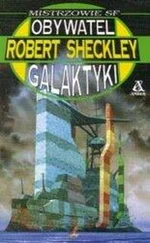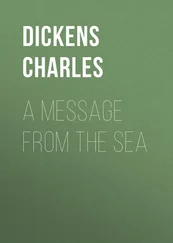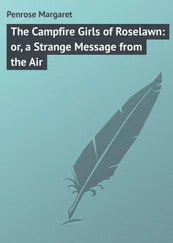Robert Sheckley - Message From Pluto
Здесь есть возможность читать онлайн «Robert Sheckley - Message From Pluto» весь текст электронной книги совершенно бесплатно (целиком полную версию без сокращений). В некоторых случаях можно слушать аудио, скачать через торрент в формате fb2 и присутствует краткое содержание. Жанр: Фантастика и фэнтези, на английском языке. Описание произведения, (предисловие) а так же отзывы посетителей доступны на портале библиотеки ЛибКат.
- Название:Message From Pluto
- Автор:
- Жанр:
- Год:неизвестен
- ISBN:нет данных
- Рейтинг книги:3 / 5. Голосов: 1
-
Избранное:Добавить в избранное
- Отзывы:
-
Ваша оценка:
- 60
- 1
- 2
- 3
- 4
- 5
Message From Pluto: краткое содержание, описание и аннотация
Предлагаем к чтению аннотацию, описание, краткое содержание или предисловие (зависит от того, что написал сам автор книги «Message From Pluto»). Если вы не нашли необходимую информацию о книге — напишите в комментариях, мы постараемся отыскать её.
Message From Pluto — читать онлайн бесплатно полную книгу (весь текст) целиком
Ниже представлен текст книги, разбитый по страницам. Система сохранения места последней прочитанной страницы, позволяет с удобством читать онлайн бесплатно книгу «Message From Pluto», без необходимости каждый раз заново искать на чём Вы остановились. Поставьте закладку, и сможете в любой момент перейти на страницу, на которой закончили чтение.
Интервал:
Закладка:
MESSAGE FROM PLUTO
By Robert Sheckley
Neil Tyson, director of the Hayden Planetarium, says, "numbers do not matter and memorized facts about planets do not matter. What matters is an understanding of the structure and layout of the solar system."
We will start from there. We inhabitants of what you call the Kuiper Belt have a lot of facts we could give you in our own nomenclature. We could tell you the size of our world, its circumference, its mass, its reflectivity. All that would be in our local equivalents, which you could translate into your own language, if you wanted to. But that's not what you need to gain an understanding of us Plutonians.
Mr. Tyson, whom I picture as a lean, wiry, red-haired man of the foxy variety, goes on to point out that the solar system can be considered in five broad families: the terrestrial planets; the asteroid belt; the Jovian planets; the Kuiper Belt, and the Oort Cloud. You may not be familiar with the Oort Cloud. But we will leave the people of that region to speak for themselves at some later time. I am here as a Plutonian, and I want to say a few words about the region we inhabit: the Kuiper Belt.
We do not call it the Kuiper belt ourselves. Gerard Kuiper, who might have been a tall, heavy, red-cheeked Dutchman, never came this way, and was not himself an example of what he was speaking about. He was simply a man who proposed the existence of this belt. We ourselves call the Kuiper belt Home, but you may not understand what we mean by that term. I want to tell you a few things about it.
To understand this, we need to say something about QB1, a small icy companion to our world which was discovered by the Earthmen David Jewitt, the former USC linebacker, and J. Luu, a world-class middle distance runner, both at the University of Hawaii. They used a telescope, of course; we Kuiperians do not need any such apparatus, since QB1 is right next door to us, clearly visible with the naked eye or its equivalent organ. It is a familiar little world; in fact, we Plutonians use it as a vacation ground.
QB1 is small and icy, similar in size to an asteroid. It orbits one and a half times further from the sun than Neptune. This puts it pretty far off the beaten track, even for us, and so we consider it a primitive world, unvisited even by the ubiquitous bearded phytoplankton, those adventurers of the inner solar system.
QB1 is a great place for a holiday lodge, since it also has a lake, frozen, of course, and tall green fir trees, also frozen, and imported at great expense from a more temperate region whose location I am not at liberty to disclose.
This lodge at QB1 has a permanent grounds keeper, whose work is not too difficult. This is fortunate since in many ways Old Alex cannot be considered a living creature. Not, anyhow, as most of us understand the term. His non-living nature brings out his static quality, which in turn makes it difficult for him to get around with much speed. But he does his best, and the work is not difficult. There is no rush in getting it done: mainly a matter of getting in logs from time to time and sweeping the floors.
The Kuiperian main place, of course, is Pluto itself. There seems to be some question among you as to whether or not Pluto is a planet. We have sometimes wondered that ourselves. We like to think of it as a planet, since the term confers a certain romantic cachet, and all of us would like to think of ourselves as genuine planet dwellers. But we are as well aware as you that the eccentricity of its orbit renders this suspect.
This is no problem for us, since after all Pluto is Home and we can call it a planet or an asteroid or a Kuiper Object or even mint jelly, and it would be all the same. But some people care about such things, especially poets and science fiction writers. The more scientifically minded among us prefer Tyson's grouping into broad families. This has a certain stateliness, and is less confusing.
Planet or comet, Pluto has its own civilization, its restaurants and lending libraries, its dancehalls with their equivalent of bare breasted maidens. We have all the equivalents to your life. Not even the common hot dog is left out. We are eternally grateful to this doctrine of correspondences that makes comprehension possible between unlike species on differing worlds.
I wish you could see our fine cities! From the air, a thousand or so feet above the ground, you can appreciate the twinkling lights of the machines that deter birds, and you can also make out the dark traceries which connect all of our places to each other. The flight to view the city, especially for those with weak wing muscles, is not a light matter. One can used propellants, of course, but they rather detract from the aesthetic effect.
There is so much to see here! Our Museum of Natural Ice Forms is the finest in the Outer Planets; the little cafИ attached to it makes for pleasant dining, though you might want to avoid it during the solstice. Beauty Parade, in the southern part of the city, is admired by most cultured tastes, and, by Transpositional Aesthetics can be enjoyed by people of your race as well as mine.
Best of all, we haven't had a war since we put down the Snow People.
I was remarking on this to my wife Marguerite (not her real name) just the other day. I thought that our good features would be especially prized by Earth people, since they have a predilection for systems of understanding.
"Marguerite," I said. "Do you realize that there are systems of understanding which make even the most far-out and incomprehensible things understandable to the meanest intelligence, and do so quickly, easily, and with no mrschlagg."
"You have said this many times," Marguerite said. "But you have never defined the word mrschlagg for me."
"Mrschlagg is a common word in our language," I replied. "It is descriptive of the expression your father gets on his face when I postulate the existence of the drndst."
"Neither my father nor I ever understood what you mean by drndst."
"It is a common enough term. His trouble lies in a generational difference, I would say."
"Yes, you would say that," Marguerite shot back. "You and your newfangled vocabulary of infinitesimals of composure."
"You studied the subject yourself, in school," I reminded her.
"Everyone studied it. It is required. But that does not make it comprehensible."
"Everyone in the top nine mastered it."
"You know I have never been a top nine," Marguerite retorted. "There you go again with your elitist talk!"
"My dear, I intended no such thing. Can't we get along for one day?"
"I don't see how, the way you carry on."
It was the sort of situation that comes up in all households. Quickly I proposed a session of ice-skating on the Long Pond. Marguerite accepted, reluctantly at first. But when I pummeled her with the round little rocks she loves so well, our day was complete and another catastrophe averted.
I was able to return home and complete my message to you Earth people, with my compliments to Mr. Tyson, my prayers to your god Einstein, and my best wishes to your well-known Mr. Kuiper.
Интервал:
Закладка:
Похожие книги на «Message From Pluto»
Представляем Вашему вниманию похожие книги на «Message From Pluto» списком для выбора. Мы отобрали схожую по названию и смыслу литературу в надежде предоставить читателям больше вариантов отыскать новые, интересные, ещё непрочитанные произведения.
Обсуждение, отзывы о книге «Message From Pluto» и просто собственные мнения читателей. Оставьте ваши комментарии, напишите, что Вы думаете о произведении, его смысле или главных героях. Укажите что конкретно понравилось, а что нет, и почему Вы так считаете.







